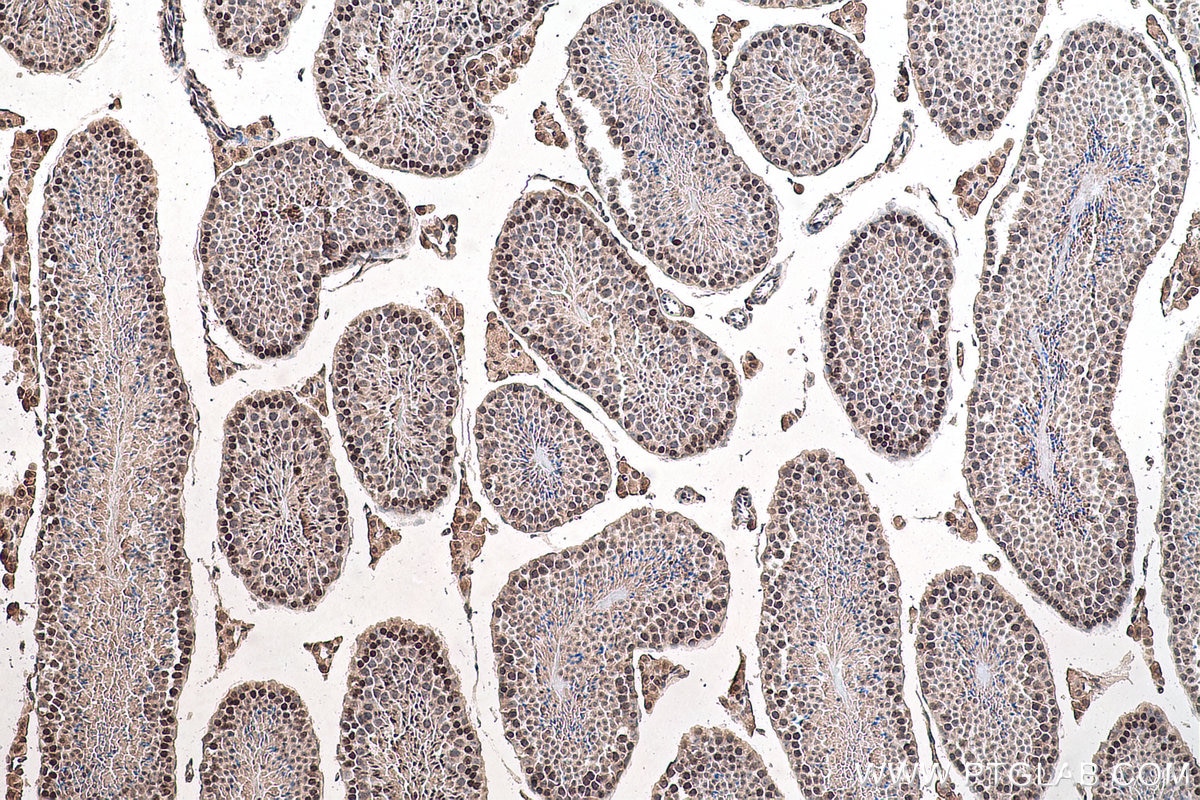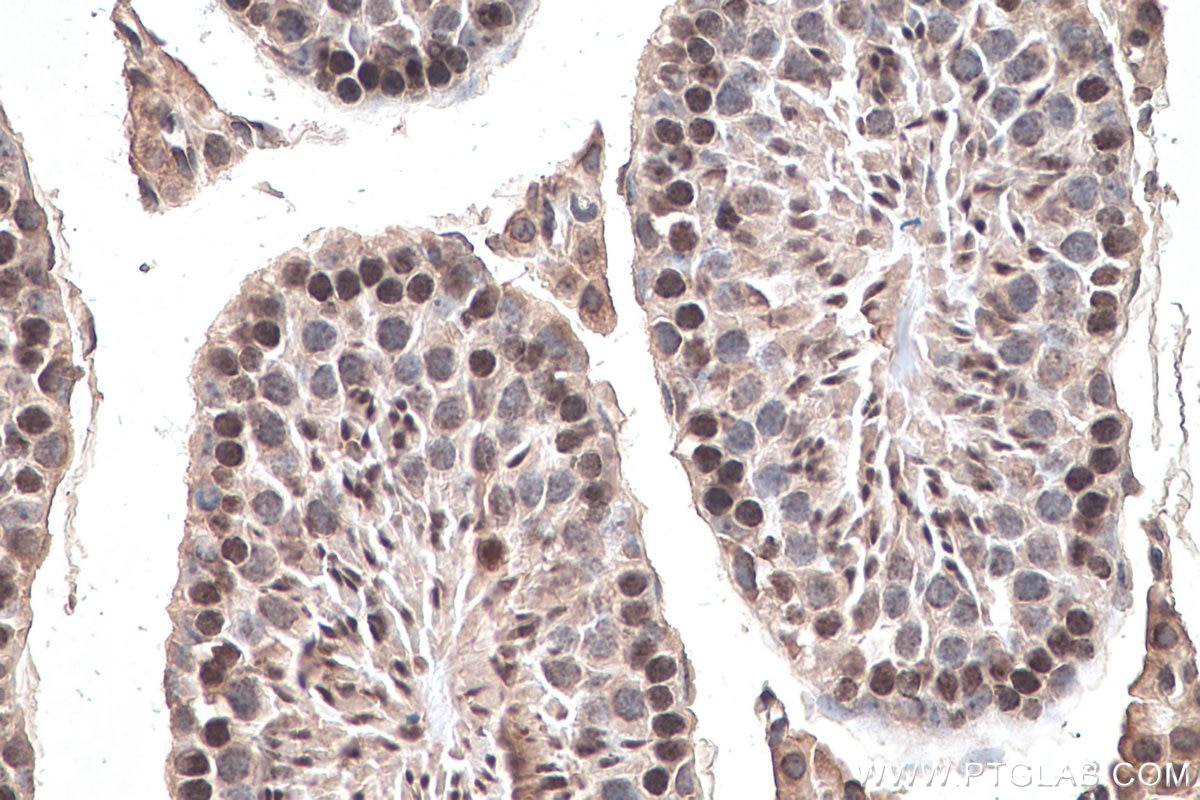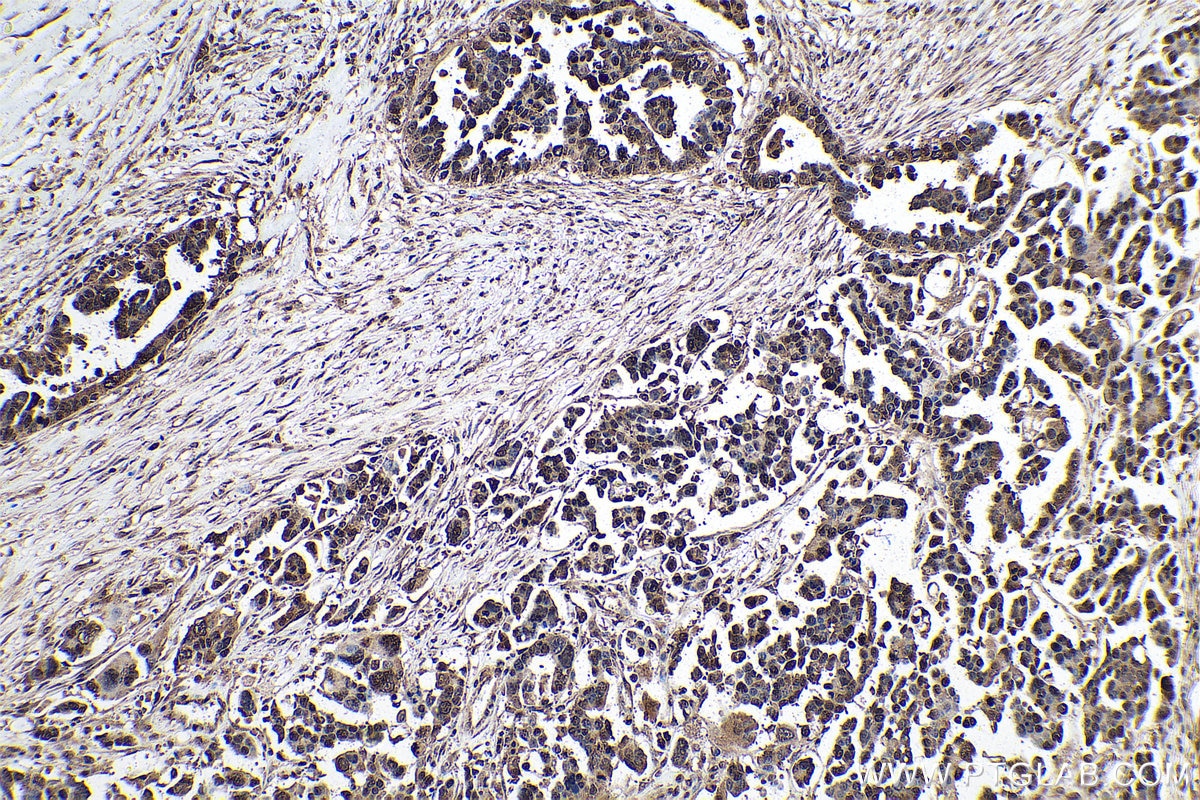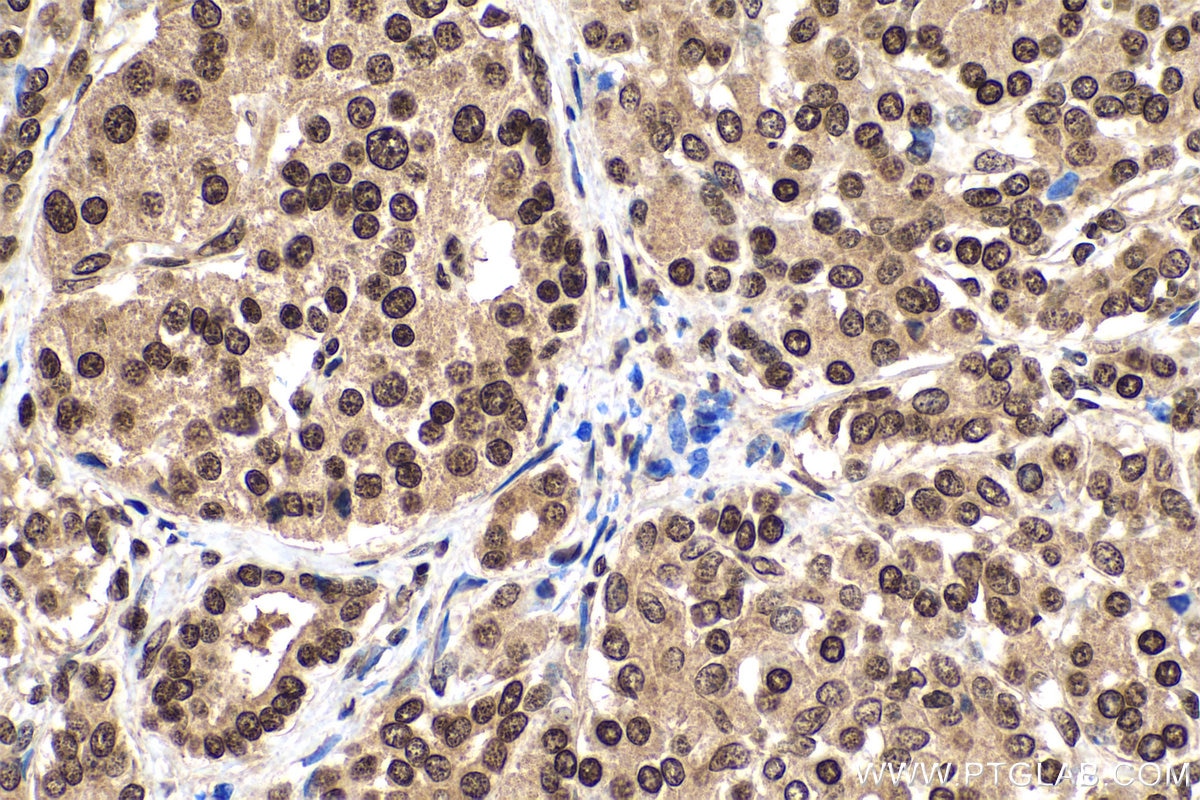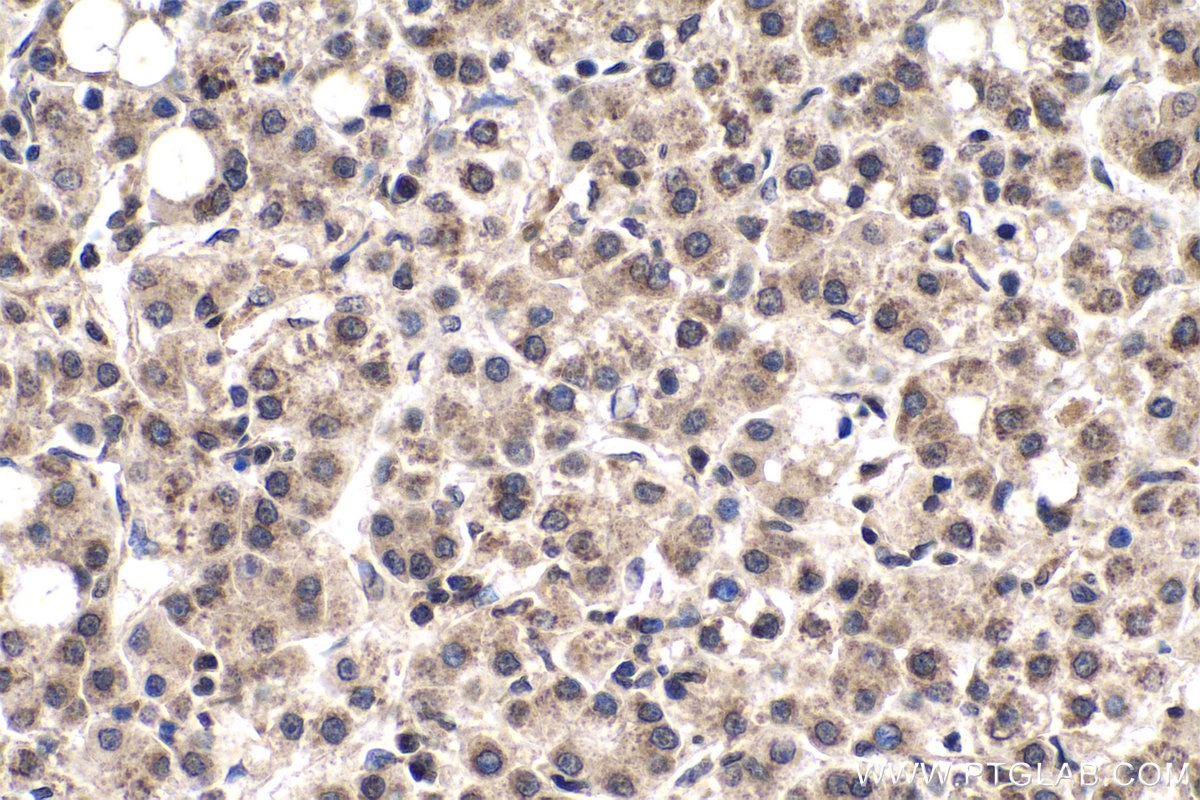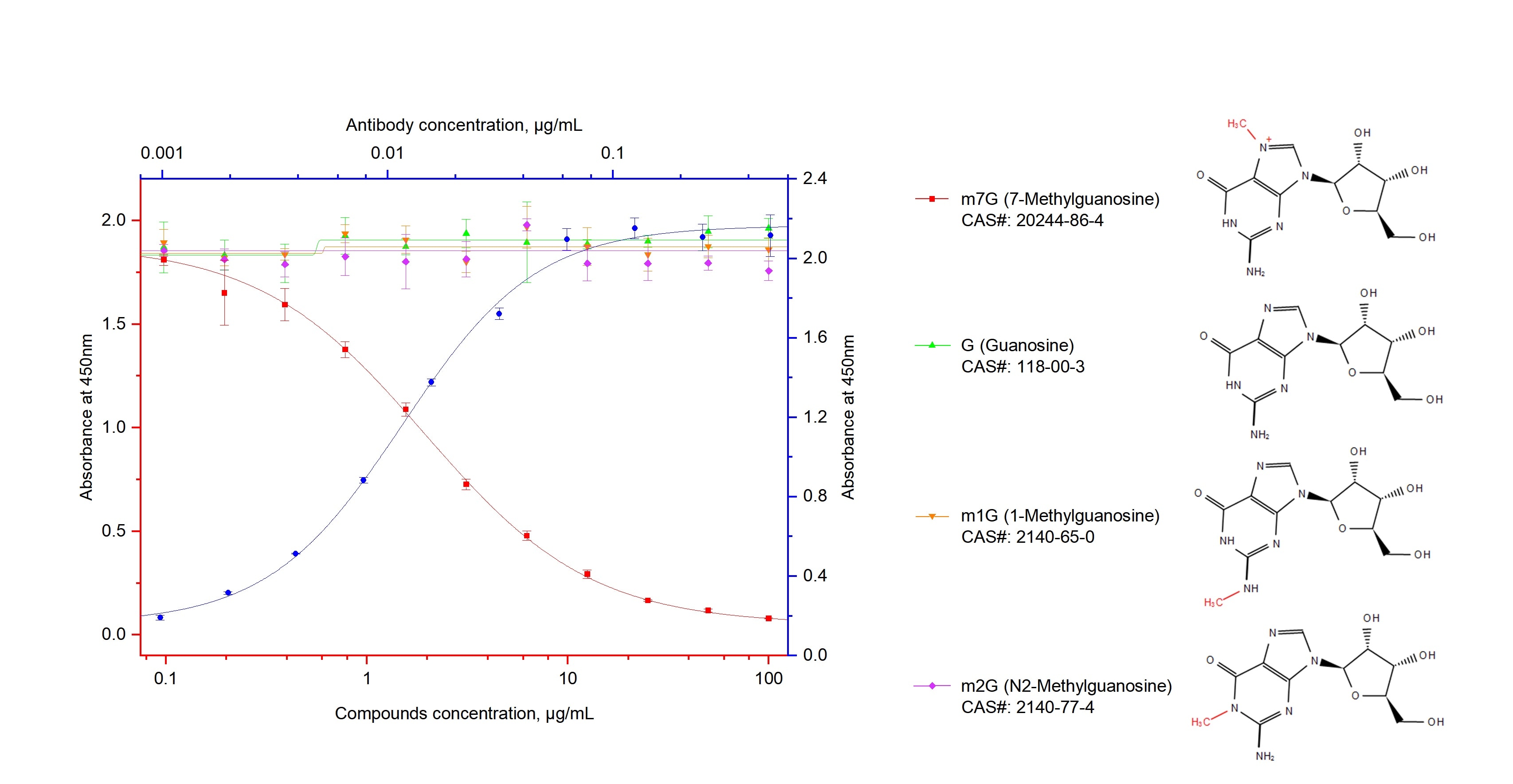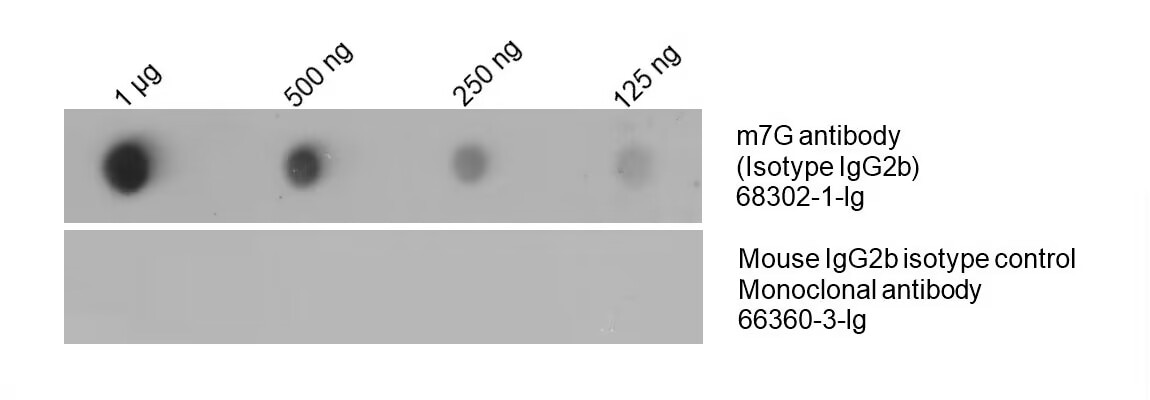m7G Monoklonaler Antikörper
m7G Monoklonal Antikörper für IHC, Dot Blot, ELISA
Wirt / Isotyp
Maus / IgG2b
Getestete Reaktivität
chemical compound und mehr (1)
Anwendung
IHC, Dot Blot, ELISA
Konjugation
Unkonjugiert
CloneNo.
2C3E10
Kat-Nr. : 68302-1-Ig
Synonyme
Geprüfte Anwendungen
| Erfolgreiche Detektion in IHC | Maushodengewebe, humanes Kolonkarzinomgewebe, humanes Leberkarzinomgewebe, humanes Pankreaskarzinomgewebe Hinweis: Antigendemaskierung mit TE-Puffer pH 9,0 empfohlen. (*) Wahlweise kann die Antigendemaskierung auch mit Citratpuffer pH 6,0 erfolgen. |
| Erfolgreiche Detektion in ELISA | compound |
| Erfolgreiche Detektion in Dot Blot | HeLa-Zellen |
Empfohlene Verdünnung
| Anwendung | Verdünnung |
|---|---|
| Immunhistochemie (IHC) | IHC : 1:1000-1:4000 |
| Enzyme-linked Immunosorbent Assay (ELISA) | ELISA : 1:10-1:100 |
| DOT BLOT | DOT BLOT : 1:2500-1:10000 |
| It is recommended that this reagent should be titrated in each testing system to obtain optimal results. | |
| Sample-dependent, check data in validation data gallery | |
Produktinformation
68302-1-Ig bindet in IHC, Dot Blot, ELISA m7G und zeigt Reaktivität mit chemical compound
| Getestete Reaktivität | chemical compound |
| In Publikationen genannte Reaktivität | Maus |
| Wirt / Isotyp | Maus / IgG2b |
| Klonalität | Monoklonal |
| Typ | Antikörper |
| Immunogen | Peptid |
| Vollständiger Name | m7G |
| Gene symbol | |
| Gene ID (NCBI) | |
| Konjugation | Unkonjugiert |
| Form | Liquid |
| Reinigungsmethode | Protein-A-Reinigung |
| Lagerungspuffer | PBS with 0.02% sodium azide and 50% glycerol |
| Lagerungsbedingungen | Bei -20°C lagern. Nach dem Versand ein Jahr lang stabil Aliquotieren ist bei -20oC Lagerung nicht notwendig. 20ul Größen enthalten 0,1% BSA. |
Hintergrundinformationen
7-Methylguanosine (m7G) is a modified purine nucleoside. It is a methylated version of guanosine and when found in human urine, it may be a biomarker of some types of cancer. In the RNAs, 7-methylguanosine have been used to study and examine the reaction evolving methylguanosine. It also plays a role in mRNA as a blocking group at its 5´-end. The m7G modification actively participates in biological and pathological functions by affecting the metabolism of various RNA molecules, including messenger RNA, ribosomal RNA, microRNA, and transfer RNA. Increasing evidence indicates a critical role for m7G in human disease development, especially cancer, and aberrant m7G levels are closely associated with tumorigenesis and progression via regulation of the expression of multiple oncogenes and tumor suppressor genes.
Protocol for Dot Blot:
https://www.ptglab.com/protocol/68302-1-IgDotBlot.pdf
Protokolle
| PRODUKTSPEZIFISCHE PROTOKOLLE | |
|---|---|
| IHC protocol for m7G antibody 68302-1-Ig | Protokoll herunterladenl |
| STANDARD-PROTOKOLLE | |
|---|---|
| Klicken Sie hier, um unsere Standardprotokolle anzuzeigen |
Rezensionen
The reviews below have been submitted by verified Proteintech customers who received an incentive for providing their feedback.
FH Claire (Verified Customer) (08-07-2025) | Works great
|
